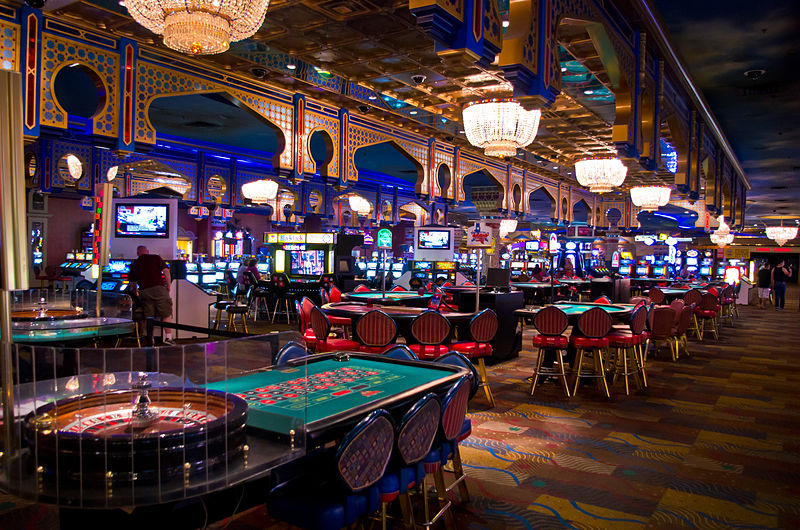Casino games have captivated players over the ages, transforming from simple pastimes to intricate adventures that integrate chance, tactics, and amusement. From the ancient roots of gambling in societies including ancient Mesopotamia and Rome to the glitzy corridors of modern casinos, the evolution of these games reveals much about our nature and our relationship with luck. As societies have intertwined and technology has advanced, casino games have transformed, illustrating the changes in society and developments in gameplay.
The initial iterations of gambling likely featured basic games involving dice and betting on the outcomes of sporting events. uus777 As time passed, these primitive activities grew into more complex games like playing card games, the game of roulette, and the myriad slot machines that line the premises of casinos today. Each era brought its distinct regulations, design elements, and social relevance. In the current era, casino games maintain their evolution with the rise of online platforms, enabling players from various parts of the world to participate in a shared experience, further blending the traditional with the age of technology.

Ancient Roots of Gaming Games
Gaming games have origins that reach back to old civilizations, where betting was profoundly embedded in cultural traditions and social customs. The first known forms of betting developed in ancient Mesopotamia around 3000 BC, featuring basic dice activities made from knuckle material. These primitive games laid the groundwork for more advanced gambling games, reflecting human beings’ natural desire to seek wealth and entertainment through chance.
As civilizations developed, so did their gambling pursuits. In ancient Chinese culture, around 2300 BC, objects were found that were similar to early rudimentary versions of a lottery game. More structured forms of gambling arose in the ancient Roman civilization, where games of luck were a popular pastime, often occurring in social events. The ancient Romans developed various wagering games, which entailed dice and board activities, showing the pervasive nature of betting across various economic classes.
With the passage of years, these primitive activities contributed to the progress of contemporary gambling activities. In the medieval period, playing card games grew prevalent in European culture, paving the way for the professional gambling establishments we know today. The transition from informal betting to formal gambling in taverns and private houses marked a significant shift in how people engaged with activities of luck, leading to the subsequent establishment of gaming houses as dedicated places for gambling.
The Growth of Modern Gambling Industry
The final 20th century marked a crucial change in the field of gambling games, driven by tech innovations and shifts in societal views towards betting. The emergence of computers and the internet altered the way players engaged with their favorite gaming experiences. Online casinos emerged, enabling gamers to enjoy timeless casino classics like Texas Hold’em and blackjack from the safety of their houses. This emerging digital landscape not only expanded access to gambling options but also drew in a younger demographic who found the comfort and variety appealing.
As online gambling gained popularity, so did developments in casino tech. The creation of sophisticated programs and visual elements transformed classic gambling games into captivating experiences. Gamblers could now interact with authentic dealers through live feeds, bringing the vibe of physical casinos directly into their living rooms. This blending of in-person play with digital interfaces created a new hybrid model that enhanced the community element of playing, making it possible for individuals to connect and compete with fellow gamers around the world.
Moreover, the growth of mobile gaming substantially changed the gambling environment. With the widespread use of mobile phones and tablets, players can enjoy their preferred gaming options everywhere, whenever. Mobile applications offer a vast array of options customized for mobile screens, catering to the busy daily life of contemporary gamers. This availability has resulted in increased participation in casino games, fostering the rapid expansion of the gambling sector. As a result, the outlook of gambling continues to progress, responding to new technologies and changing player expectations.
The Impact of Technology on Casino Games
Technology’s advancement has greatly changed casino games, enhancing the overall experience for players for players around the world. With the introduction of the internet, online casinos were created, allowing players to play their preferred games from the comfort of their homes. This shift not only made casino games more accessible but also expanded the variety of games available, as online platforms could host numerous variations of traditional games without the limitations of brick-and-mortar establishments.
The rise of mobile technology further revolutionized the casino gaming landscape. With the proliferation, players can to play casino games whenever and wherever they want. This mobility has resulted in the creation of dedicated mobile applications and optimized websites that offer smooth gaming experiences. Additionally, innovations such as live dealer games have brought the genuine feel of a casino into players’ living rooms, bridging the gap between physical and online gaming.
Moreover, advancements in artificial intelligence and VR are leading to the next generation of casino games. AI enhances game design and player interaction, creating tailored experiences based on user behavior and preferences. Meanwhile, virtual reality provides immersive environments where players can engage in a virtual casino environment, making the gaming experience more engaging and realistic. As technology continues to evolve, the future of casino games seems bright, filled with limitless opportunities for innovation and entertainment.
